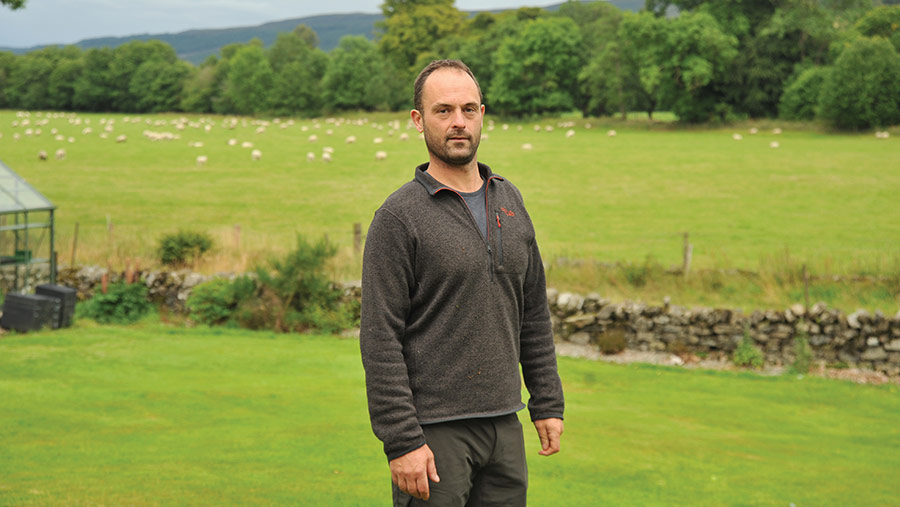Farmer Focus: £10 less for stores as they aren’t Suffolks
 © Michelle Scott
© Michelle Scott On 4 August we sold 300 store lambs at Dingwall and Highland Mart’s first lamb sale of 2023. These were our top draw of lambs, and we were happy enough finishing with an average of £76 a head.
A fortnight later, we followed that up by selling the second draw of 120 lambs, averaging £75 a head. I was happy with that, being only £1 down on the first draw.
See also: Why “breed snobbery” could challenge liveweight sales
We normally only sell our New Zealand Suffolk cross lambs as stores, but in a bid to reduce workload, we decided to sell a good few maternal Lleyn Exlana cross lambs at this sale too.
The market for these is frustrating, with them performing only slightly behind the Suffolks in weight and, when slaughtered, receiving a very similar grade. Yet they usually get about £10 less a head through the sale ring.
In the past month, we have sold 17 out of the 23 bulls born in 2022. This year, we’ve experimented within finishing them off grass.
They’ve been grazing since 6 April with no additional concentrate. I was a bit nervous that they might not get fat before 16 months old, but they have performed well.
Of the 17 that went off, 15 graded R3 and R4L and two graded on the lean side at R2. Average carcass weight was good at 343kg.
Financially, finishing the bulls at grass worked well; however, this comes with the extra hassle of keeping bulls, which for us outweighs the financial return.
We can’t run them beside cows like we can the steers, and they also enjoy digging holes on any bare ground, making a bit of a mess – another hassle we could do without. So from now on, we will just run steers.
We have also had a busy few weeks getting ready for our first public events of the year.
We opened at the beginning of the month for our first sunflower field events. There’s always more to do than expected in the run-up to making the place suitable for public visits again.
Thankfully we have a separate steading where events take place and, therefore, it’s only a minor clean-up, rather than trying to make the working farm suitably accessible.

